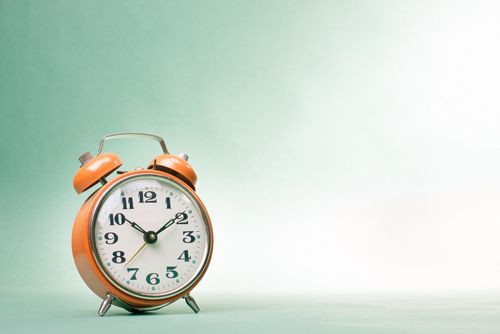Beat The Clock (Time): Working Until A Task Is Finished Leads To More Creativity, Happiness

Countdown isn’t only the focus of a Beyoncé song; it’s what a majority of employees do day in and day out. Two hours until that meeting. Forty-five minutes until deadline. And what we would argue is the most important measure of time, 10 minutes until lunch. People who literally work on the clock are also known as clock-timers — and they’re the less creative and happier for it.
On the opposite end of the spectrum, there are people who are considered event-timers. These people, rather than count every hour and minute between tasks and deadlines, focus on a single task at a time. Or, they do as much as they can towards a task before moving onto something else. In a new study published in the Journal of Personality and Social Psychology, researchers set out to see if the two different schedule styles impacted emotions and overall well-being.
Study participants confirmed their scheduling style before researchers conducted several experiments to measure the implications said schedule, including a neutral style that served as a control. A portion of the experiments focused on the implications of relying on a particular style, while the others relied on what that style meant for a person’s well-being. The results showed participants who were clock-timers profoundly shaped their perception of the social word.
“We believe this is due in part to the fact that clock-timers view the world as a composition of separate units of events that can be scheduled independently of one another, while event-timers view the world as a composition of linked even that occur in an orderly fashion,” researchers explained.
Additionally, researchers found clock-timers don’t feel as in control of their schedule as event-timers, which leads them to cultivate positive emotions less when compared to event-timers. As the researchers also pointed out, clock-timing unfortunately happens to be the norm in Western culture. Yet, ignoring the clock empowers a person's control, creativity, and happiness.
“Taken together, our findings show that the adopting of either scheduling style harnesses a person’s perception of the social world,” researchers wrote. “It appears that the quasi-adage in economics of clock-time being ‘the one best way’ of organizing activities in modern societies would benefit from a deeper examination through the lenses of social and cognitive psychology.”
Put another way: It's time to break free of traditional culture norms and explore other, better ones. Pun intended.
Source: Sellier A-L, Avnet T. So What If the Clock Strikes? Scheduling Style, Control, and Well-Being. Journal of Personality and Psychology. 2014.
Published by Medicaldaily.com



























